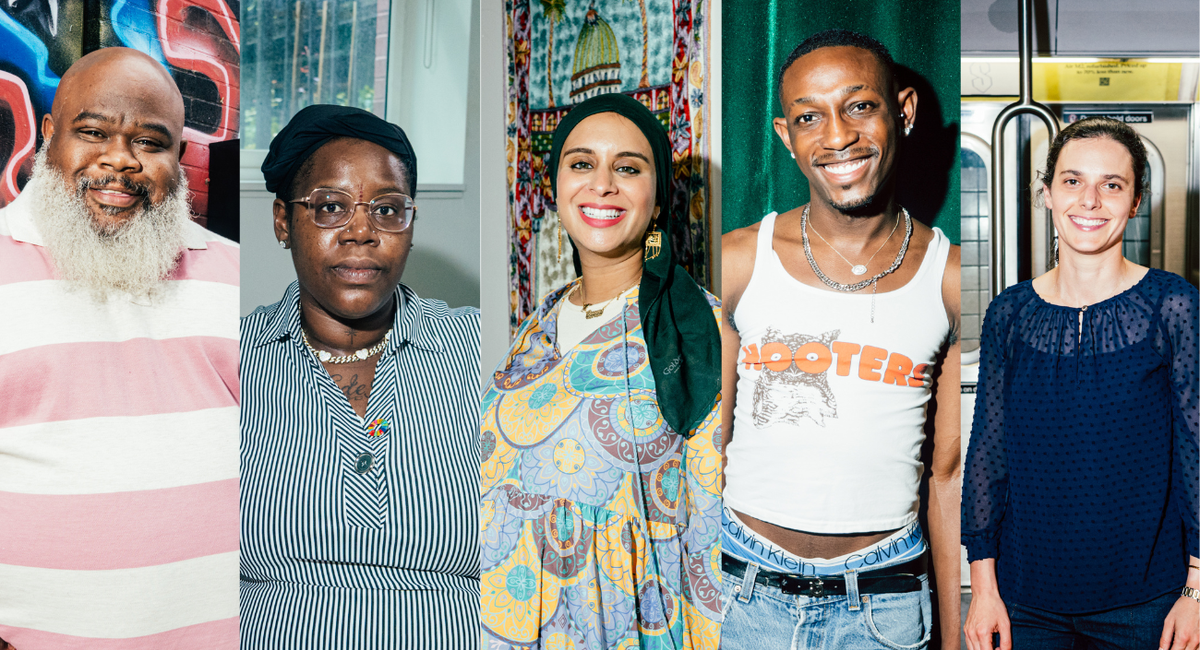The David Prize announced its 2025 cohort Tuesday, awarding $1 million in unrestricted funding to five New Yorkers with bold visions for the city’s future.
The winners include legal advocates, mental health innovators, community safety organizers and arts leaders.
Launched in 2020 by the Walentas Family Foundation, the David Prize awards five New Yorkers each year $200,000 with no strings attached. Unlike traditional grants, there’s no formal reporting or required outcomes: Winners can spend the money however they choose.
“The mission is to invest in … individuals in New York City that are relentlessly committed to the city,” Erika Augustine, executive director of the prize, said. “We learn every year from our open call around what New Yorkers need, what do they want, what do they wish was true about the city that isn’t.”
Winners are selected from open nominations. Past recipients include street medics, housing advocates and environmental educators.
The 2025 winners include Jhody Polk, who is expanding the Jailhouse Lawyers Initiative, an NYU Law School program that helps incarcerated and formerly incarcerated people learn and apply legal knowledge, and Rana Abdelhamid, a martial arts activist who teaches self-defense and community leadership to women across the city.
Colby King is a rising leader in New York’s kiki ballroom scene, a younger and more queer- and POC-focused part of the ballroom competition dance and voguing landscape. He said he’s using the prize to expand his newly launched Kiki Arts Collaborative, a program that offers mentorship, job training and professional development to LGBTQ+ youth of color.
King said the idea came from his own double life: corporate employee by day, kiki scene participant by night. He recalled artists having their dance videos repurposed by major brands, or being asked to sign unfair contracts under pressure that sometimes recruited them into corporate projects without proper compensation or credit.
Now, even as talent scouts show up at balls, dancers aren’t always equipped to protect themselves, King said.
“All these new opportunities are coming and there’s not really people building that bridge to make sure we get there in a way that is sustainable,” he said. “The point of the organization is to close that gap.”
Kiki Arts Collaborative’s nine-month fellowship program will pair ballroom artists with practical tools King said they don’t always otherwise have access to, like headshots, resumes, networking workshops and industry placements. It’s an attempt to create long-term career pathways for ballroom artists who have long powered fashion, dance and pop culture, often without recognition or compensation.
“We’ve always been here,” said King’s ballroom “mother,” legendary Yoncé 007. (The term “legendary,” refers to a rank in the ballroom competition community.) “This is a community that’s always been here, always been a part of New York City art culture and has been shaping it for the longest time.”
His ballroom “father,” icon Kalik Louboutin echoed this. “You wouldn’t hire an untrained dancer for ballet,” Louboutin said. “It’s the same thing with voguing. It takes a lot of technique to do it properly.”
Kiki Arts Collaborative is currently sponsored by the Bronx Academy of Arts and Dance, and King said he hopes the David Prize will help position the program for nonprofit status and, eventually, public funding.
Few people understand the promise and limits of the prize as Domingo Morales does. He won the inaugural award in 2020 for his work founding Compost Power, a community-based network of composting sites at public housing campuses.
“The money gave me time to breathe. Instead of thinking about surviving, it allowed me to focus on the actual program,” Morales said. “But people thought I was rich. I had to cut off a couple family members cause they’re like, ‘Oh, you rich, let’s go party.’”
Morales took the award as personal income — winners can direct it to nonprofits instead — and funneled the rest directly into launching sites, hiring NYCHA residents and refining a system that now diverts food waste without attracting rodents. He said the network has begun shifting how city agencies view composting.
Morales is clear-eyed about the structure of the prize, which he called a launchpad, not permanent infrastructure.
“You’ve got two years [of runway] to make connections with foundations, with funders, so that when that funding is out, you’ve already got the next steps,” he said.
This article has been updated to reflect a new name for Colby King’s project.
